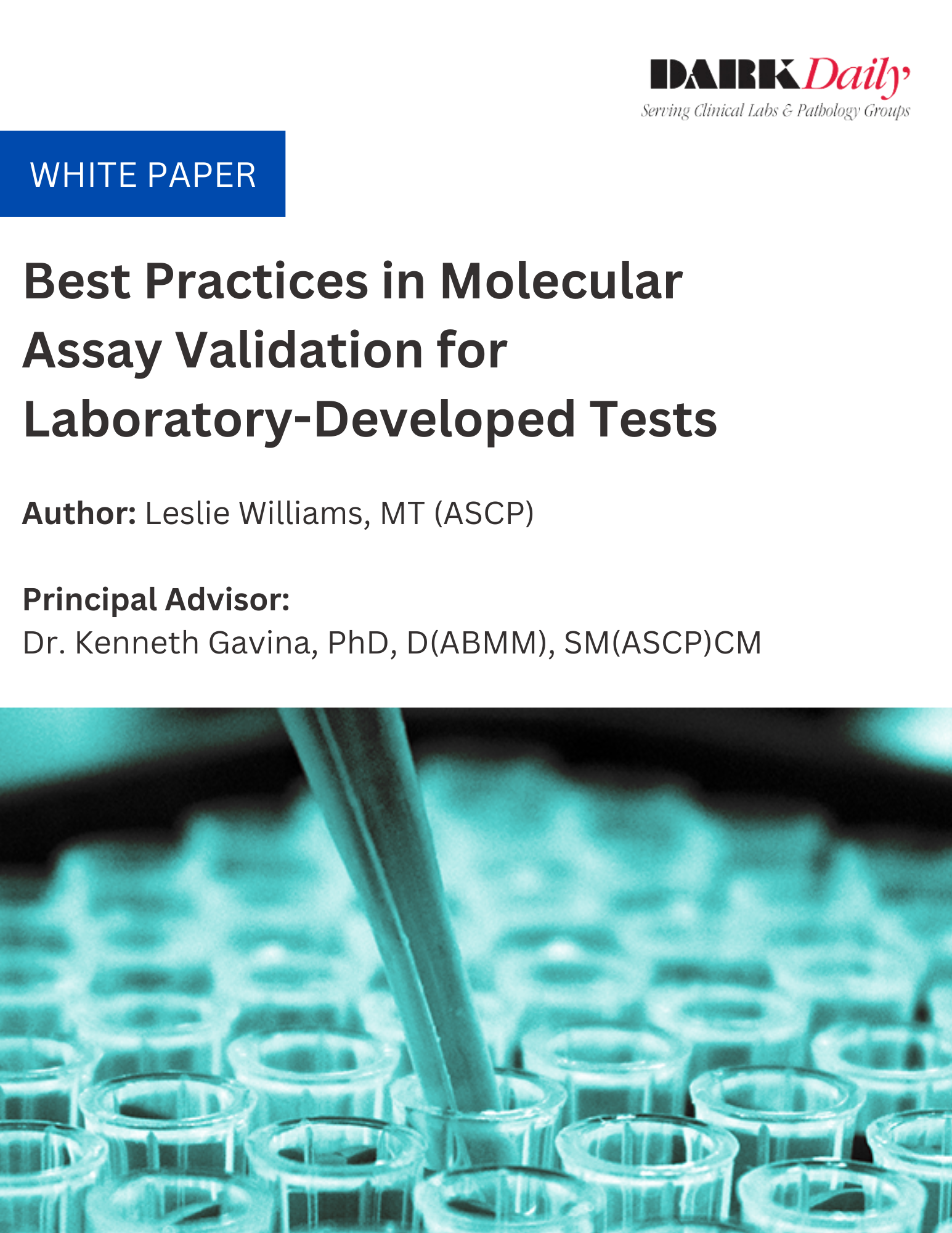FREE WHITE PAPER
Best Practices in Molecular Assay Validation for Laboratory-Developed Tests

Seegene USA
Molecular laboratory developed tests (LDTs) play a crucial role in providing accurate and timely patient care. These methods are designed to address those analytes or disease markers for which there is no commercially available test, so ensuring the safety and accuracy of these LDTs is not just an option – it’s a necessity.
This comprehensive white paper is designed to be your go-to guide, providing invaluable insights into critical success factors and essential functions crucial for maintaining compliance and delivering reliable results. Tailored for clinical molecular laboratory staff, this resource delves into the tangible aspects of compliant method validation, offering practical strategies for proving the accuracy and efficacy of laboratory-developed tests (LDTs).
Key Highlights:
- Defining method validation and identifying the regulatory requirements
- Strategies for designing method validations and documenting the analytical validity of LDT assays
- Calibration and quality control methods for molecular LDTs
This white paper is crafted with the needs of laboratory staff in mind, making it an invaluable resource for those directly involved in validating molecular LDTs. patient testing. Whether you're a seasoned professional or new to the field, our white paper is tailored to enhance your understanding and elevate the quality of your LDT method validations.

Complete the form below to get your free white paper
The Dark Intelligence Group is committed to protecting and respecting your privacy, and we’ll only use your personal information to administer your account and to provide the products and services you requested from us. From time to time, we would like to contact you about our products and services, as well as other content that may be of interest to you. In exchange for providing this free content, we may share your information with the companies whose content you choose to view. By accessing the white paper, you’re agreeing to the above.
You can unsubscribe from these communications at any time. For more information on how to unsubscribe, our privacy practices, and how we are committed to protecting and respecting your privacy, please review our Privacy Policy.
